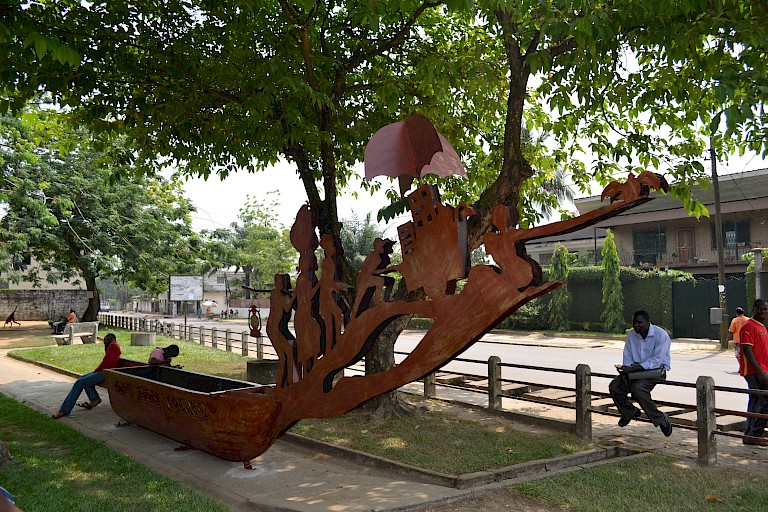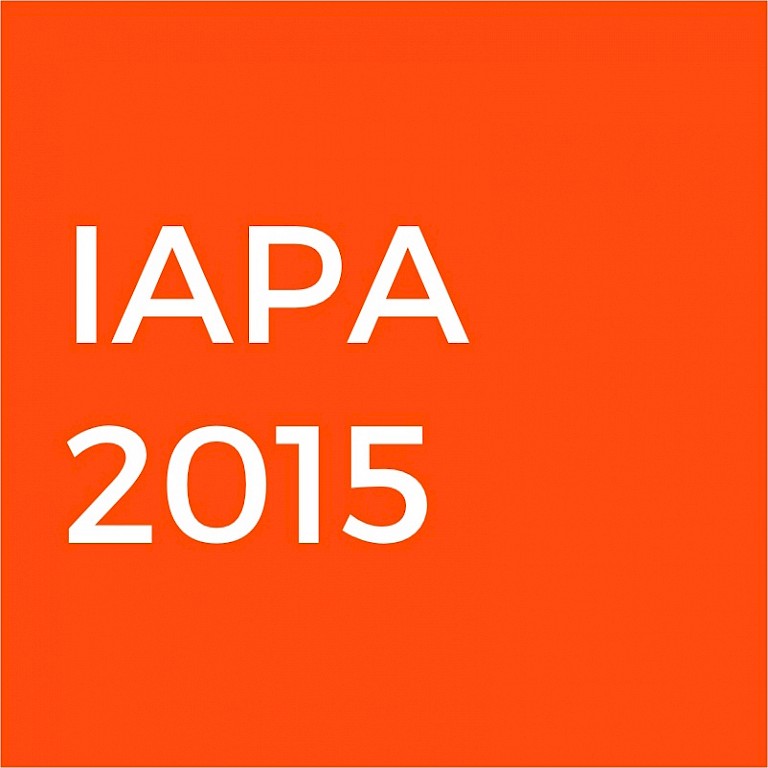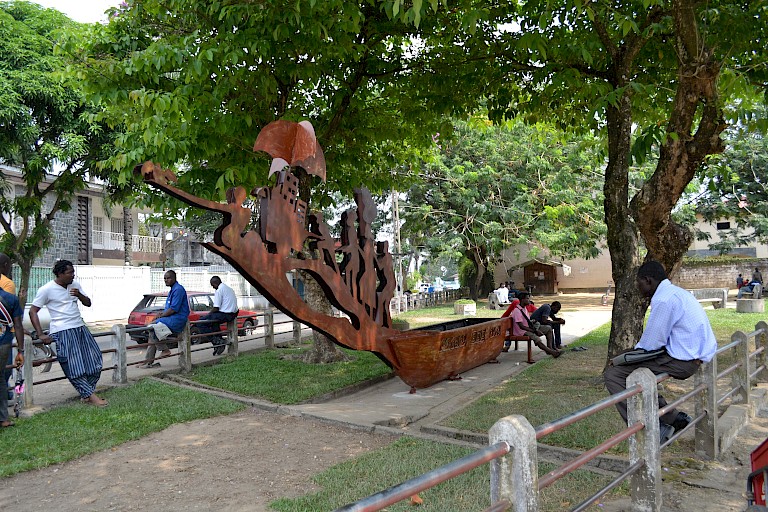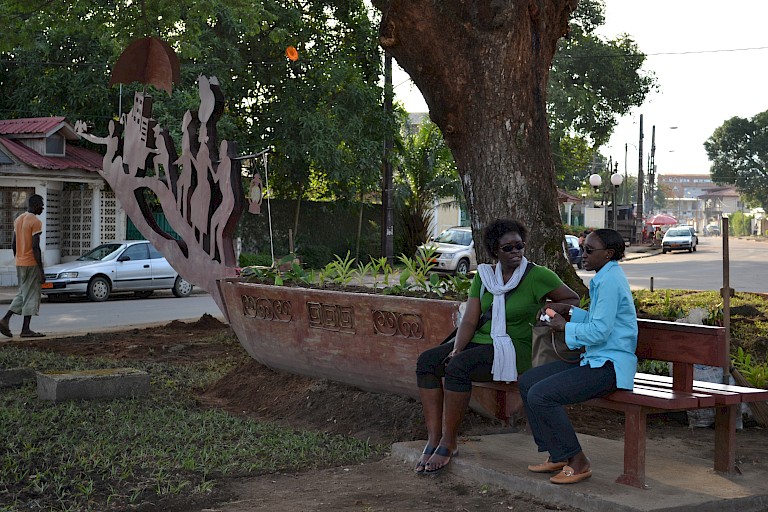



Salon Urbain de Douala is the city’s triennial festival of public art. La Pirogue Céleste was a public work by Hervé Gabriel Ngamago Youmbi, curated by Simon Njami for the Salon Urbain de Douala 2010 edition. Translated, La Pirogue Céleste means the celestial canoe, and as the title suggests, Youmbi’s sculpture consisted of a 10-meter-long by 0.9-meter wide canoe reminiscent of the traditional watercraft used by boatmen of the Bonapriso district. Made of wood and metal, two of the city’s major export products, the canoe was situated in a park in Bonapriso. Symbolically, the prow of the boat made reference to the city’s past and future, while the accompanying planter on the edge of the sculpture evoked the region’s vegetation. A bench provided seating for audiences in the direct vicinity of the canoe for rest and contemplation.
One point of excellence of this project is its evocation of traditional ritual practices connected to the water. The artist tells us that the celestial canoe’s prow recalls those used by the Sawa people. The Sawa held annual water celebrations known as the Ngondo Festival during which time messengers were sent to the water gods in the Wouri River, connecting human and divine realms. Against this backdrop, La Pirogue Céleste could be characterized as a contemporary messenger to the Sawa gods, drawing the attention of the public to the ritual history and tradition of the city, as well as to the festival’s theme—Douala’s troubled relationship with water. For many residents, water access is unfortunately precarious, due to the poor maintenance of water works and poor public distribution. To make matters worse, during the monsoon season, many parts of the city are flooded, posing serious public health problems because of the pollution resulting from poor or nonexistent mains drainage systems.
All copyright belongs to Shanghai Academy of Fine Arts, Shanghai University.



